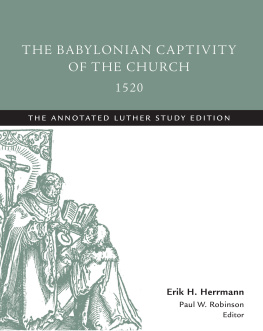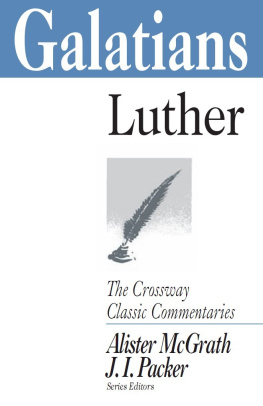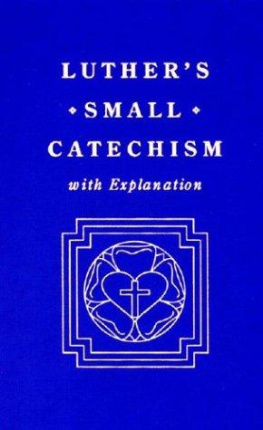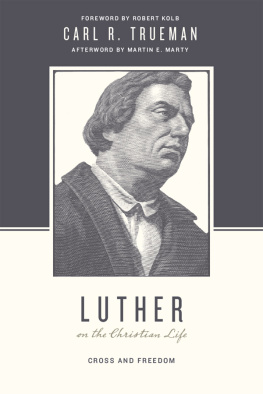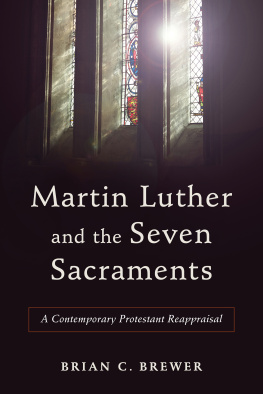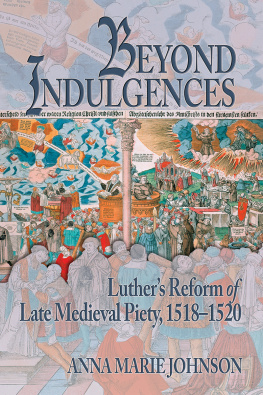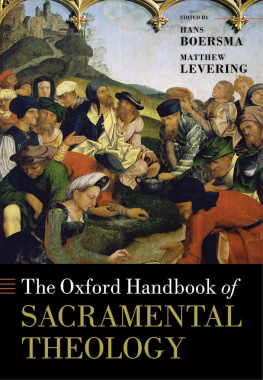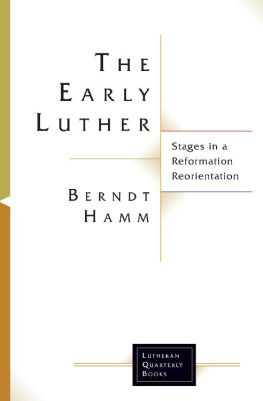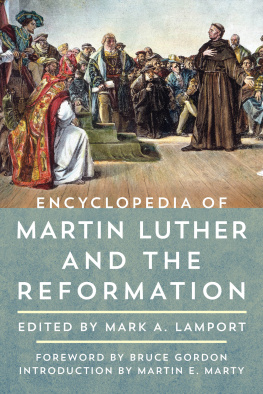Martin Luther - The Babylonian Captivity of the Church, 1520
Here you can read online Martin Luther - The Babylonian Captivity of the Church, 1520 full text of the book (entire story) in english for free. Download pdf and epub, get meaning, cover and reviews about this ebook. year: 2016, publisher: Fortress Press, genre: Religion. Description of the work, (preface) as well as reviews are available. Best literature library LitArk.com created for fans of good reading and offers a wide selection of genres:
Romance novel
Science fiction
Adventure
Detective
Science
History
Home and family
Prose
Art
Politics
Computer
Non-fiction
Religion
Business
Children
Humor
Choose a favorite category and find really read worthwhile books. Enjoy immersion in the world of imagination, feel the emotions of the characters or learn something new for yourself, make an fascinating discovery.
- Book:The Babylonian Captivity of the Church, 1520
- Author:
- Publisher:Fortress Press
- Genre:
- Year:2016
- Rating:5 / 5
- Favourites:Add to favourites
- Your mark:
The Babylonian Captivity of the Church, 1520: summary, description and annotation
We offer to read an annotation, description, summary or preface (depends on what the author of the book "The Babylonian Captivity of the Church, 1520" wrote himself). If you haven't found the necessary information about the book — write in the comments, we will try to find it.
In his The Babylonian Captivity of the Church, Martin Luther set forth a reconsideration of the sacramental Christian life that centered on the word. His thesis is that the papacy had distorted the sacraments with its own traditions and regulations, transforming them into a system of control and coercion. The evangelical liberty of the sacramental promises had been replaced by a papal absolutism which, like a feudal lordship, claimed its own jurisdictional liberties and privileges over the totality of Christian life through a sacramental system that spanned birth to death. Yet Luther does not replace one tyranny for another; his argument for a return to the biblical understanding of the sacraments is moderated by a consideration of traditions and external practices in relation to their effects on the individual conscience and faith.
This volume is excerpted from The Annotated Luther series, Volume 3. Each volume in the series contains new introductions, annotations, illustrations, and notes to help shed light on Luthers context and interpret his writings for today. The translations of Luthers writings include updates of Luthers Works, American Edition, or entirely new translations of Luthers German or Latin writings.
Martin Luther: author's other books
Who wrote The Babylonian Captivity of the Church, 1520? Find out the surname, the name of the author of the book and a list of all author's works by series.

